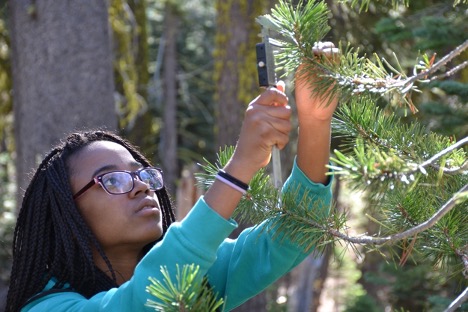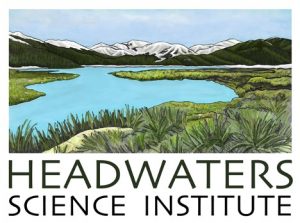Headwaters Science Institute
Impact
Understanding science and the skills involved in scientific research is critical in today’s world. And not only because science jobs are being created faster than most other careers. The ability to research, assess information, and use critical thinking skills to make decisions is absolutely necessary for many aspects of modern life and full civic engagement. In addition, an appreciation of the natural world, and understanding of the processes that shape it, prepares young people to be effective stewards of nature as we face life-altering climate challenges. Headwaters Science Institute’s programs are taught by high-level scientists who can provide excellent science education that fosters curiosity in the natural world and in the sciences. These scientists mentor kids through their research projects and make sure they understand the process of science through conducting research. Our program participants consist of 50 percent low-income students and 40 percent minority students. Without Headwaters, those students would likely not otherwise have the opportunity to pursue an inquiry-based, intensive approach to learning science. Headwaters educates over 4,000 students per year and works with more than 20 schools and over 30 teachers. Seventy-seven percent of students say they learn something in our program that they would not have learned in their traditional classroom. Headwaters aims to serve all populations with our educational programs. We are committed to raising funds to provide free or reduced cost programs for the students who have no other source of hands-on science education. We make this possible by seeking grant funding, utilizing the generous help of individuals, and partnering with key community organizations, schools, and educators. Ninety percent of our funding goes directly to our science programs, with just 10 percent re-invested in fundraising efforts and staffing. In order to raise the overall level of science education in schools and benefit students beyond those we can directly serve, we also focus on training the teachers we work with. We mentor them through the process of teaching science through actually doing science. In this way, every teacher we work with can go on to better impact all of their future students.
Accomplished
- Need Accomplished
- Evaluation Developing
- Sustainability Developing
- Replication & Scalability Accomplished
- Partnerships Accomplished
- Capacity Accomplished
- Challenging & Relevant Content Accomplished
- STEM Practices Accomplished
- Inspiration Accomplished
- Under-Represented Groups Developing

Students were fully engaged in the scientific process with inquiry, questions, claims, evidence and reasoning. But they were also practicing and refining some other overall general skills like teamwork, presentation skills, observation and inference and decision-making. I had some students who had yet to show much interest in science or school so far this year, but with the autonomy in this project they showed a real interest in school!”
7th grade science teacher
Design Principles
The programs in this database clear a high bar. STEMworks reviewed each program against the Design Principles for Effective STEM Philanthropy. Programs must be Accomplished () across all Design Principles, or be Developing (
) in a maximum of three areas.
Overarching Principles
-
Need Accomplished
Identify and target a compelling and well-defined need.
-
Evaluation Developing
Use rigorous evaluation to continuously measure and inform progress towards the compelling need identified.
-
Sustainability Developing
Ensure work is sustainable.
-
Replication & Scalability Accomplished
Demonstrate replicability and scalability.
-
Partnerships Accomplished
Create high impact partnerships.
-
Capacity Accomplished
Ensure organizational capacity to achieve goals.
STEM Principles
-
Challenging & Relevant Content Accomplished
Offer challenging and relevant STEM content for the target audience.
-
STEM Practices Accomplished
Incorporate and encourage STEM practices.
-
Inspiration Accomplished
Inspire interest and engagement in STEM.
-
Under-Represented Groups Developing
Identify and address the needs of under-represented groups.
Program Overview
Headwaters Science Institute aims to foster curiosity through science by creating hands-on, inquiry-based science programs in schools and through overnight trips. During our programs students learn to ask questions and use the scientific process to answer their own questions. We believe that this experience will nurture their curiosity and gain critical science skills. Our programs are centered on student curiosity because that is what motivates young people to learn. We teach them to capture their curiosity so they can develop a passion for learning throughout their lives. Research shows that curious kids grow into successful adults. We are building a generation of successful, curious, engaged students who are prepared for the future.
Funders and Partners
For a complete list of partners see the partners page on our website: https://headwatersscienceinstitute.org/partners/
